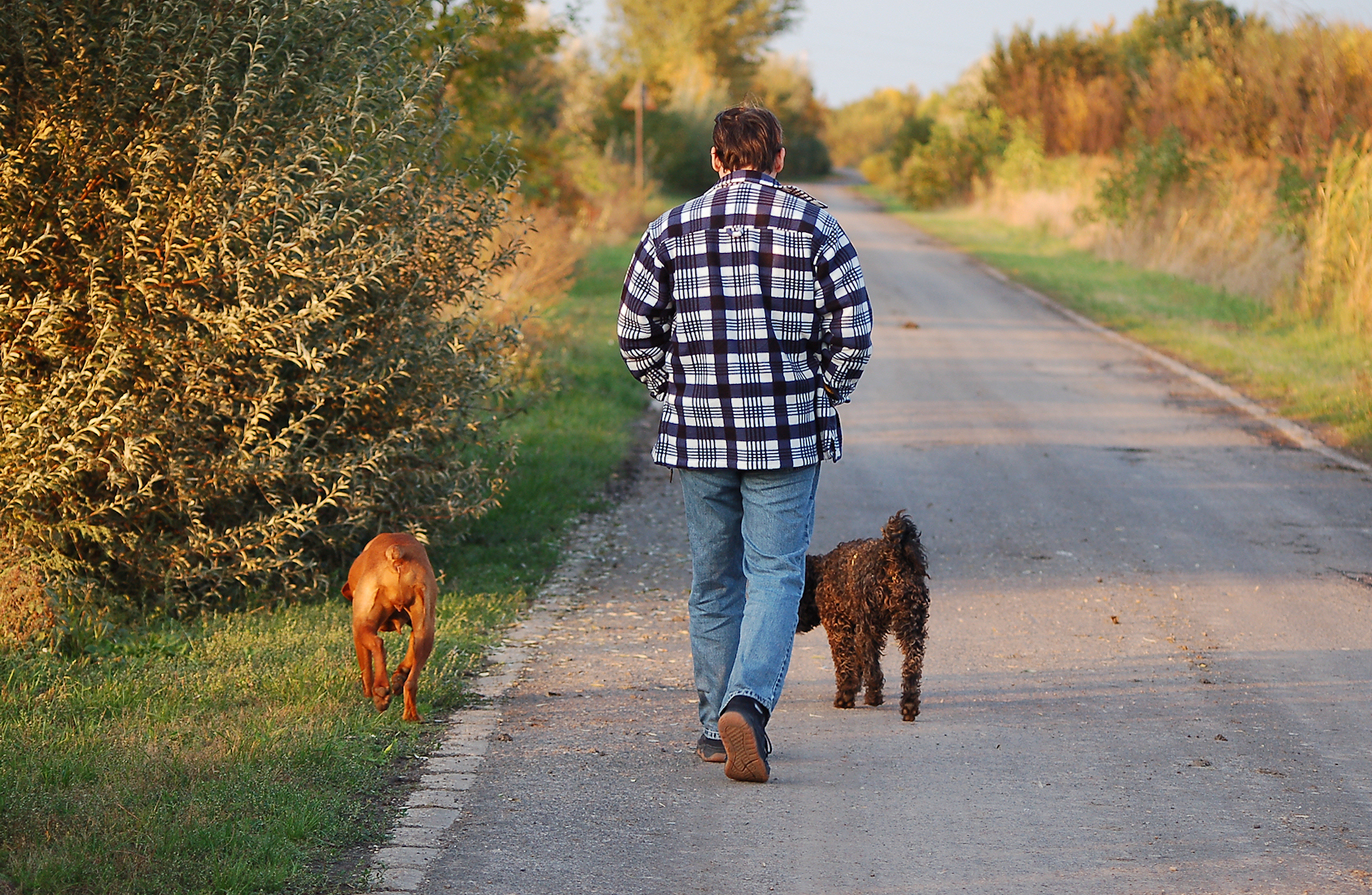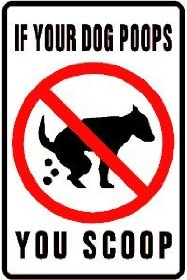Pet Waste
PET WASTE AFFECTS WATER QUALITY

YOU CAN MAKE A DIFFERENCE!
By Nancy Berlin--
Natural Resource Specialist/Master Gardener Coordinator
Virginia Cooperative Extension - Prince William County
Click here for the Pet Waste Brochure!
Every time it rains, thousands of pounds of pet waste wash down storm drains into streams, rivers and lakes and the Chesapeake Bay. If left to decay on sidewalks or grass, and not disposed of properly, pet waste flows directly into nearby streams and creeks without being treated at wastewater treatment facilities.
When pet waste is disposed of improperly, water quality isn’t the only thing that suffers — your health may be at risk, too. Adults working in their gardens, children playing outside and family pets are the most at risk for infection from some of the bacteria and parasites found in pet waste. When pet waste is left to decay on sidewalks or grass near the street, it may be washed into storm drains, which drain directly into our waterways. Pet waste then decays, using up oxygen, releasing ammonia, and encouraging weed and algae growth. All of these mean trouble for water quality and fish. When citizens understand the problems of pet waste, they can work together to remove the threat and nuisance. Most communities have “pooper scooper” laws; check your homeowner association for regulations.
How you can make a difference in your community:
-
Pick up pet waste in your yard. It is not a fertilizer.
-
Carry disposable bags with you when you walk your dog. When you dispose of the waste, wrap it carefully to avoid spilling, and ensure you place it in the proper trash receptacle.
-
Flush it down the toilet where it will go to a sewage treatment plant. Don’t flush debris or cat litter that can cause plumbing problems. Secure used cat litter in a plastic bag for the trash.
-
Bury it in a hole or trench, at least 12 inches deep away from gardens, wells and water source and cover with at least eight inches of soil to let it decompose slowly.
-
Don’t add it to your compost pile as most piles do not get hot enough to “cook” the bacteria.
- Contact your HOA or local parks to inquire about providing pet waste stations in area parks, along trails and in public places where people frequently walk their dogs.
